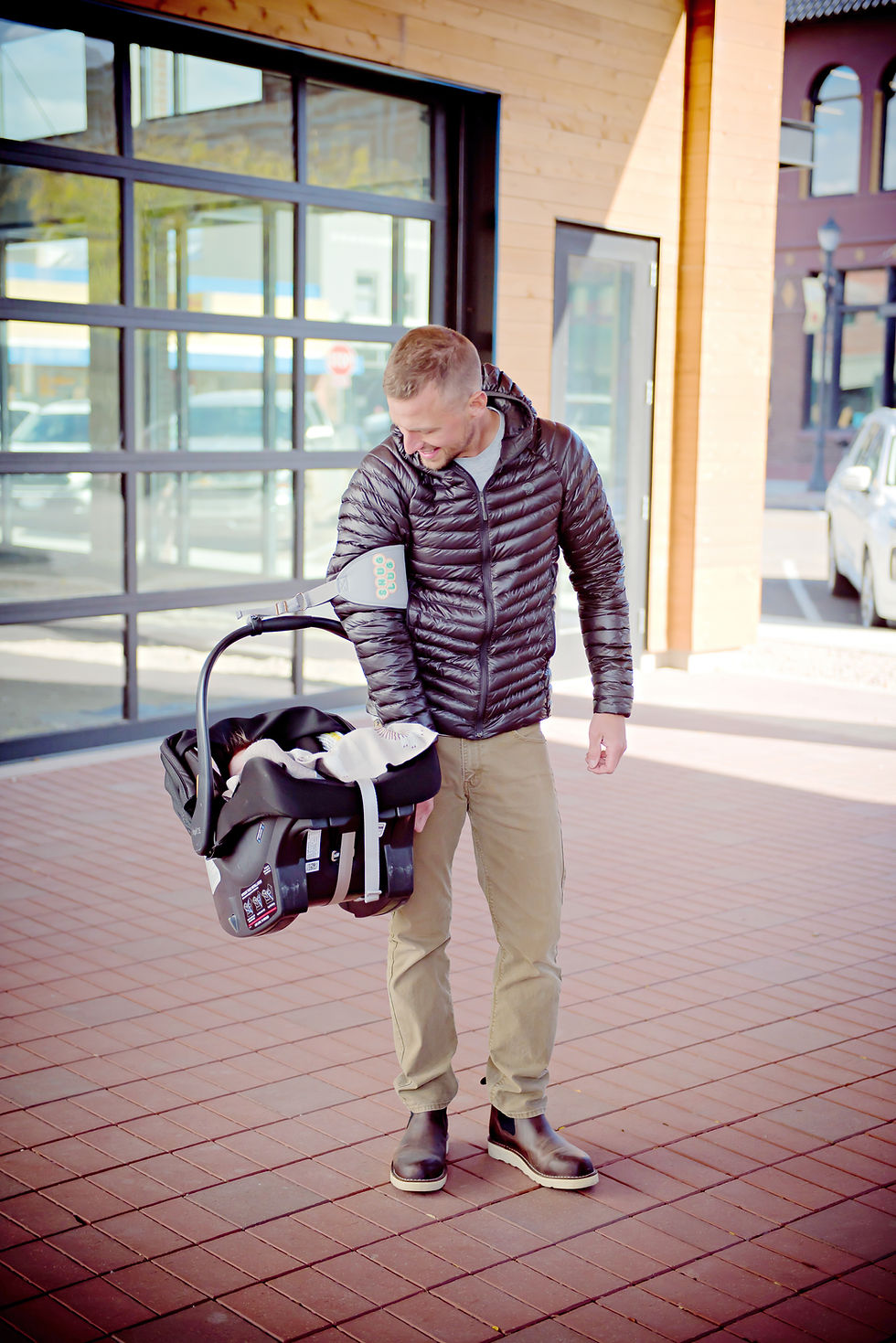- thesnuglug
- Aug 25
- 3 min read
If you’re like me, you probably remember the first time you carried a car seat and thought, “This thing is heavy!” That’s because infant car seats don’t just hold your little one—they add a surprising amount of weight on their own.
As parents, we want to make the best choice when it comes to comfort, safety, and convenience. One of the most overlooked factors in buying a car seat is weight. A lighter seat can make all the difference when you’re hauling it through the doctor’s office, daycare, or even just from the car to your front door.
In this guide, I’ve put together a full comparison of the infant car seat weights of the most popular on the market—ranked from the lightest to the heaviest—so you can see how much each one weighs before adding your baby inside.
Why Car Seat Weight Matters
Portability: A lighter car seat makes quick errands and travel much easier.
Ergonomics: Carrying 20–30 lbs awkwardly at your side can put major strain on your arms and back.
Lifestyle Fit: If you’re constantly on the go, a lightweight model may be worth the trade-off in features.
But here’s the kicker: even the lightest car seats start feeling really heavy once your baby gets bigger. That’s why I created the Snug Lug, a cushioned arm wrap that attaches to your car seat handle to make carrying easier and more comfortable. (I’ll share more about that later.)
Infant Car Seat Weight Comparison by Brand (Lightest to Heaviest)
Here’s the breakdown of popular car seat models and how much they weigh without the base:
Lightest Car Seats (6–8 lb)
These are fantastic options for parents who travel often or want the easiest carrying experience. Seats like the UPPAbaby Aria and Nuna PIPA aire RX are impressively light, but keep in mind they may not have every extra feature of heavier models.
Mid-Range Weights (9–11 lb)
This is the “sweet spot” for many parents. Car seats like the Chicco KeyFit 30 and UPPAbaby Mesa strike a balance between features, safety, and manageable weight.
Heaviest Car Seats (11+ lb)
These tend to be feature-packed and ultra-safe, but the weight adds up quickly. The Cybex Cloud Q and Doona are among the heaviest, and once you add your growing baby, you’ll definitely feel it.
Why Do Car Seats Feel So Much Heavier?
It’s not just the number on the scale—it’s how you carry it. A 10 lb car seat plus a 12 lb baby means you’re holding 22 lbs at an awkward angle, away from your body. That leverage makes it feel closer to 30 lbs.
A Parent-Made Solution: The Snug Lug
Having a more ergonomic hold was the purpose behind our design. Close to your body and up by your hip where you have the most strength. The help that's there when you need it!
✅ Cushioned wrap for your arm
✅ Secure strap that attaches to your car seat handle
✅ Helps distribute weight more comfortably
✅ Tested to hold 130 lbs (normal use is under 30 lbs)
If you’ve ever thought, “There has to be a better way to carry this car seat,” the Snug Lug is that solution.

Final Thoughts
Choosing the right car seat weight can make your daily routine much easier. Whether you go for the lightest option like the UPPAbaby Aria or a feature-rich model like the Cybex Cloud Q, remember: the weight only increases as your baby grows.
That’s why accessories like the Snug Lug can make such a big difference. Because while you can’t make your baby any lighter (if only!), you can make the car seat easier and more comfortable to carry.



Comments